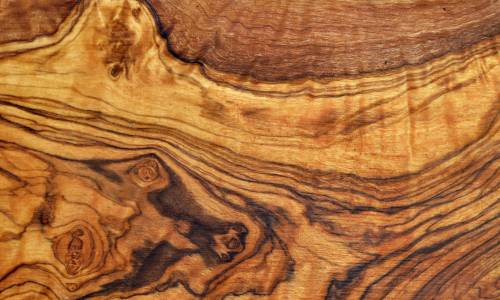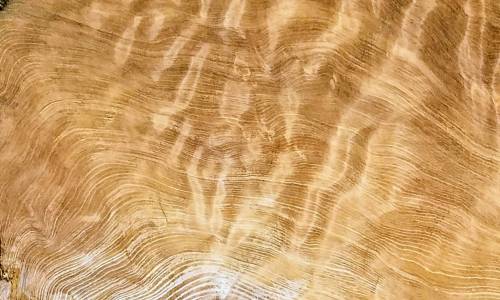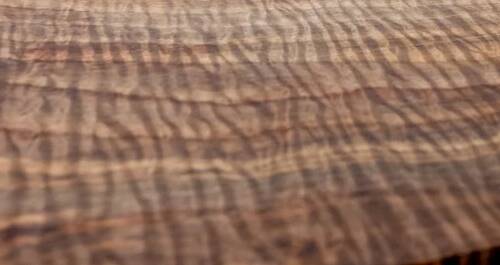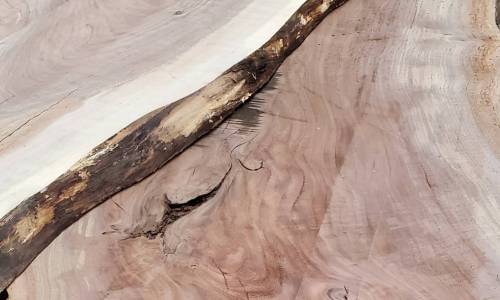DOMESTIC HARDWOODS SPECIES
We offer a select variety of urban salvaged domestic hardwoods in various thicknesses and price ranges. We stock lumber products in a wide selection of thickness 4/4 through 16/4 and in multiple grades. All domestic lumber in stock is either surfaced and straight-lined, rough, or live edged. If you have another species, you’re looking for contact us! If its not in our stock we can quickly and easily source the material for you.
• Custom milling: up to 67″ wide by 20′ long.
• Surfacing on slabmizer, we can accommodate 18′ long by 72″ wide by 8″ thick. Price is $5BF. Contact us for surfacing if you want your slab flat.
Olive California
Oleo Europa;
Most of our Olive wood is grown right here in California, Olea europaea, is a hard and rich in color wood that is prized all around the world for its appearance, density, straight grain, and fine texture. Olive wood is easy to work and turns, glues, polishes and finishes well. It has been said that olive wood gets even more beautiful with age as it deepens in depth of color. It is highly prized for its exceptional grain pattern, and its warm nutty brown heartwood that is heavily contrasted with the creamy sapwood, and interlaced with multiple veins of other darker brown or black streaks.

Description:
Origin: California
Color: Heartwood is a cream or yellowish brown, with darker brown or black contrasting streaks. Color tends to deepen with age. Olive is sometimes figured with curly or wavy grain, burl, or wild grain.
Janka Hardness – 2,700 lbf (12,010 N)
Decay and Weather Resistance: Conflicting reports range from non-durable/perishable to durable/moderately durable. Olive is susceptible to insect attack.
Workability: Workability – Easy to mild, with interlocked grain resulting in possible tear out during surface operations. Sometimes lumber can have poor stability. It can be glued and finished well.
Uses: Olive wood is versatile and easy to work with, but even though it is hard and strong, it is not used for outdoor applications since it cannot survive in the open for long. It is very rarely available for purchase in the lumber form factor

Old Growth Redwood
Our Salvaged Old-Growth Redwood is also sourced right here in Northern California. Redwoods get their common name from their bark and heartwood, the reddish-brown color of which stems from high tannin levels. Other chemicals found in the leaves, branches, and bark give these trees a remarkable resistance to fungal disease and insect infestation.
Both coastal and Giant Sequoia old-growth redwood exhibit exceptional resistance to rot and decay. Old-growth material boasts superior weather, insect, and rot resistance compared to second-growth and third-growth material. Both types display remarkable stability, exhibiting minimal shrinkage or seasonal movement, making them interchangeable in various applications. Despite being a lightweight softwood, it possesses a favorable weight-to-strength ratio. Due to its exceptional weather resistance, redwood is commonly utilized for decks and outdoor furniture. Its versatility extends to veneer, construction lumber, posts, beams, turnings, and even musical instruments. Redwood’s grain patterns range from straight to curly, wavy, or burled.
The heartwood of redwood can range from a deep reddish-brown to a deep purple-ish red, while Giant Sequoia heartwood typically exhibits a deeper purple-ish red hue. The Giant Sequoia redwood we offer is sourced from the Santa Cruz Mountains, utilizing trees that fell during a storm. Our coastal redwood is primarily derived from urban salvage, utilizing trees that needed to be removed from cities or parks.
Description:
Origin: Coastal northwestern United States (from southwestern Oregon to central California)
Color: Heartwood color can range from a light pinkish brown to a deep reddish brown. Sapwood is a pale white/yellow. Curly figure or Redwood burl (sometimes referred to as “lace” or by the name Vavona) are occasionally seen.
Janka Hardness: 450
Decay and Weather Resistance: Rated as moderately durable to very durable regarding decay resistance. Lumber from old-growth trees tends to be more durable than that from younger second-growth trees.
Workability: Typically easy to work with hand tools or machinery, but planer tearout can occur on figured pieces with curly, wavy, or irregular grain. Glues and finishes well.
Uses: Veneer, construction lumber, beams, posts, decking, exterior furniture, and trim. Burls and other forms of figured Redwood are also used in turning, musical instruments, and other small specialty items.
Black Walnut Urban Salvaged
Black Walnut [Juglans nigra]
Also known as “American Walnut,” and California Walnut it’s easily the most popular species among American woodworkers, most valued for its grain, color variations, and workability. The unique species is known for its rich, swirling colors, and is coveted particularly by master craftsmen and gun stock manufactures.
The Walnut we carry comes from the Northern California orchids, (salvaged from old orchards turning over their trees) the same with our Claro, Bastogne, and English walnut. Our longer lengths walnut trees “urban salvaged” from old, diseased, random roadways and in-home yards, cities or park trees that needed to be removed. Black walnut trees are no longer planted and are becoming increasingly fewer and fewer.
California walnut is one of our specialties. We can supply large volume in formats of logs, lumber, live edge slabs, tonewood varieties, and blocks.

Description:Origin: Black Walnut, also known as American Walnut, is found primarily in the eastern United States.
Color: The heartwood of Black Walnut wood slabs are rich chocolate brown, occasionally with darker or purplish streaking. The sapwood is an off-white to tan color, but with steaming it can be made nearly as dark as the heartwood.
Janka Hardness: 1010 (medium-hard).
Decay and Weather Resistance: Rated as very durable in regard to decay resistance and is relatively resistant to fungus or insect attack.
Workability: Black Walnut wood slabs are known to be very stable once kiln-dried. I can be worked easily with hand tools and machining, and it will glue, stain, and finish well.
Uses: Because of its beautiful color, ease of workability, and stability, live edge Black Walnut wood slabs are one of the most popular search requests we get for furniture making. Black Walnut lumber is widely used for gun stocks since it is lightweight and has good shock resistance. It is also an excellent wood for turning, veneer, cabinetry, and molding.
WALNUT SLABS
Our slabs sales cost varies based on uniqueness, figure, and size and are priced per board foot accordingly. Prices Start at $12-$25 dollars per board foot, for volume orders of 1200 bf and more, volume discount are available.
We stock walnut slabs in format of 2-3 inches thick and rough sawn, custom options are available.
Seasoning:
Slabs are air-dried for 2 to 3 years based on thickness and kiln dried for 12 weeks.
Processing options:
Custom milling: up to 67″ wide by 20′ long.
We also offer flatten, sand, and finish services for your order for an additional charge.

